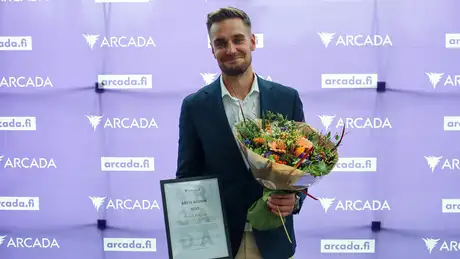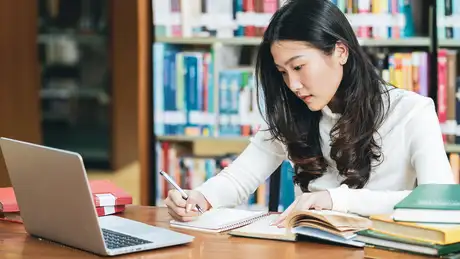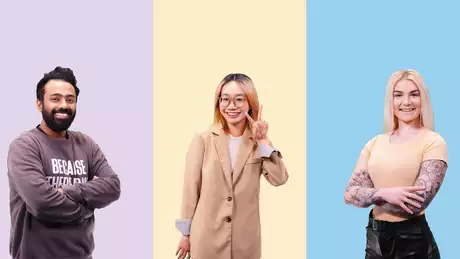The study explores the challenges and opportunities that have arisen during Covid as higher education moved to distance learning. This is done by conducting a holistic literature review on the subject. The choice of the thesis topic was natural because I am interested in the development possibilities of technologies related to education. In particular, the numerous technologies of the future, such as virtual reality, augmented reality and have long been topics that I have explored in teaching. This time it seemed appropriate to combine distance learning, which had gained popularity during Covid, with this repertoire.
The findings of the thesis show that while the fast transition to distance learning during Covid has posed many challenges, it has also offered many opportunities for re-evaluating and developing distance learning in the context of Covid and higher education. The Covid situation has also brought challenges to universities at a faster pace than expected. This way, it has spawned entirely new possibilities that would not have been reached at least as quickly without this kind of disruption.
Because distance learning will very likely continue in its various forms even after Covid, efficient, collaborative, innovative, flexible, and positive attitudes towards this kind of disruption are therefore needed from universities, teachers, and students. However, the development of something new is easily hampered by various challenges and constraints created by the parties involved in higher education. Especially in the early days of Covid, there has been considerable opposition towards distance learning, new technologies, and teaching methods on behalf of teachers, students, and universities. For example, there have been beliefs among teachers about how distance learning is almost invariably a worse option than face-to-face teaching or how distance learning requires too much work compared to it. This is particularly problematic because teachers’ attitudes have also been found to affect students’ attitudes. However, it is good to acknowledge how resistance to change is almost always present when old operating models are questioned or rejected altogether. In other words, while the connotation of the word “resistance” may seem a little steep and negative, it is often a significant ingredient toward better, more profound development.
Still, through many of the challenges and situations brought by Covid, people involved in education have inevitably become more flexible, creative, and innovative. However, we must ensure that those who have been adversely affected by the situation are considered if and when we begin to devise new ways to implement teaching, for example, into various hybrid forms. At this point, things like flexibility should not be pushed before coping either. Consequently, it is essential to pay attention to students’ mental and physical well-being, and that they are offered equal opportunities and receive support for their technological challenges. In addition to this, we should strive to identify future generations’ ways of learning, their interests, and public opinions to better develop distance learning in a meaningful but effective direction that supports their education.
More research is therefore needed. For example, previously mentioned socio-economical and technological inequalities, as well as individual needs of the students should be considered as we move towards the new normal. Many presuppositions and resistance toward new pedagogical approaches could, in turn, be dismantled based on research data collected from various situations and experiences during and after Covid. This would allow us to potentially see how the future and the change that follows might bring far more positive rather than negative.
I hope that my thesis will also allow developers of educational technologies to learn about the challenges faced by universities in transitioning to distance learning and identify related software and technology development opportunities. Of particular interest are the opportunities brought by various mobile technologies to distance learning and the idea of multidisciplinary development of education technologies which involves both universities and developers. There might also be a need to consider the ways of learning common to the new generation when developing future educational software and technologies. In this regard, in my thesis, I set out to test how the TPACK framework could support the development of educational software and technologies. Even though the TPACK framework could not meet all the expectations placed on it adequately, other alternative models and uses of the original TPACK were found for possible future studies and developmental work.
The aspects of my thesis are also related to my personal, professional development to the greatest extent possible, mainly because I work as a university lecturer. The views and recommendations encountered in the literature review have given me, in addition to extended reflection, many tools to address even the most minor challenges posed by distance learning. Indeed, the work has led me to pay increasing attention, especially towards the well-being of students, technological equality, and how our new generation students like to learn. In addition to this, I have come across model examples of various teaching hybrid models, weekly virtual coffees, and digital clinics that assist in using distance learning-related systems in my work.
All other universities in which I have been involved during my thesis writing have also provided an excellent opportunity to mirror my observations into real-world scenarios. Arcada is no exception in this regard. For example, it has been interesting to see how the exemplary approaches identified in the thesis have already been naturally adopted by Arcada in distance learning during Covid. Examples of these are the co-teaching used in Media Management studies and the numerous support services Arcada has provided during my studies. I hope that in addition to Arcada, my thesis would also provide an opportunity for other universities to reflect on the experiences associated with Covid and the distance learning carried out during it.


